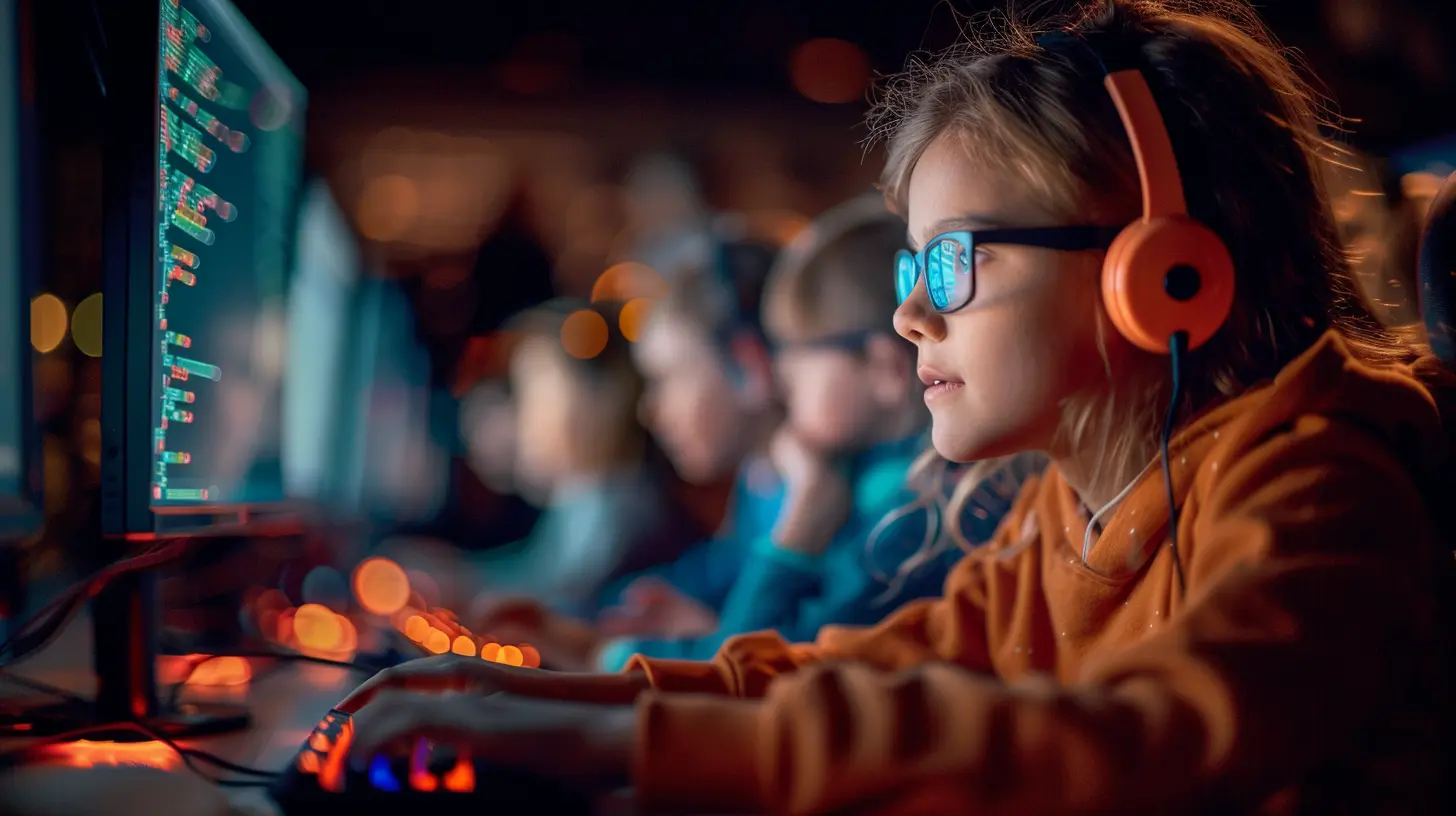15 May 2025
Introduction
Imagine living in a world where you can't read or write. Sounds impossible, right? Now, think about a future where coding is just as essential as reading and writing. That future isn't far off—it's already here.
In today's tech-driven world, knowing how to code is becoming as fundamental as knowing how to read and write. It's not just a skill for programmers or IT professionals anymore. From education and healthcare to business and entertainment, coding is shaping every aspect of our lives. So what makes coding the new literacy? Let's dive in.

The Digital World We Live In
We live in an era where technology touches almost everything we do. Whether you're using a smartphone, streaming your favorite show, or even ordering food online, there's a line of code making it all happen behind the scenes.Think of coding as the backbone of the digital world. Just as traditional literacy helps us understand books, coding helps us understand and interact with technology. And since technology is only going to expand, knowing how it works gives you an incredible advantage.

Why Coding is Compared to Literacy
1. Coding is a Universal Language
Just like English, Spanish, or Mandarin, coding is a language—a universal one. It allows people from different backgrounds and countries to communicate with machines and create software, websites, and applications.A person who knows how to code can collaborate with others across the globe without speaking the same native tongue. In a world increasingly connected by technology, that’s a game-changer.
2. It Enhances Problem-Solving Skills
Ever tried solving a puzzle? Coding is pretty similar. It’s all about breaking down complex problems into smaller, manageable parts and finding logical solutions.When kids and adults learn to code, they're not just programming computers—they're sharpening their critical thinking and problem-solving skills. These abilities are valuable in virtually any profession or life situation.
3. Coding Fosters Creativity
Most people think of coding as rigid and technical, but in reality, it's one of the most creative skills out there. Just as writers craft stories and painters create art, coders build apps, websites, games, and software from scratch.Want to create the next big social media platform? Or a game that rivals Minecraft? Coding gives you the power to turn ideas into reality.
4. It's the Literacy of Automation and AI
Automation and artificial intelligence (AI) are transforming industries. Self-driving cars, smart home devices, and even chatbots are powered by code.If literacy in the past meant being able to read signs or books, literacy today includes understanding how algorithms work and influence our decisions. Without coding knowledge, future generations may become passive consumers rather than active creators in the digital age.

How Coding Prepares You for the Future
1. Better Career Opportunities
Let’s face it—technology isn’t going anywhere, and jobs that involve coding are on the rise. Software developers, data analysts, cybersecurity experts, and AI specialists are in high demand.Even in fields that aren’t tech-focused, coding helps. Marketing professionals use programming to automate ads, business analysts rely on data science, and even journalists use coding for investigative reporting.
2. Encourages Logical Thinking and Math Skills
Coding is like a secret weapon for improving logical thinking and math skills. It teaches how to structure thoughts systematically, making it an excellent way to boost cognitive abilities.Kids who learn to code often find math more accessible because they see practical applications of concepts like patterns, algorithms, and sequences.
3. Makes You Adaptable
The digital world changes fast. New technologies emerge, old ones fade, and industries evolve. By learning to code, you’re training yourself to stay adaptable in an ever-changing environment.Think about it—learning to code is like learning how to learn. It teaches patience, perseverance, and the ability to tackle new challenges head-on.

Should Kids Learn to Code?
Absolutely! Introducing coding to kids at an early age opens doors to endless possibilities. Many schools worldwide are now incorporating coding into their curriculums, recognizing its importance for future careers.There are even fun, game-like resources for kids to start coding, such as Scratch, Code.org, and Python for beginners. By learning to code early, kids become better prepared for the digital future.
Common Myths About Coding
1. "Coding is Only for Geniuses"
You don’t have to be a math wizard or a tech prodigy to learn coding. It’s much like learning a new language—it takes practice, patience, and a willingness to make mistakes.2. "You Need a Computer Science Degree to Be Good at Coding"
Some of the best programmers in the world are self-taught. While a degree helps, platforms like Codecademy, Udemy, and free coding boot camps offer plenty of ways to learn coding without formal education.3. "Coding is Boring"
Far from it! Coding can be as exciting as you make it. Developing video games, designing websites, automating tasks, or even building robots—there’s something for everyone.How to Get Started with Coding
If you’re new to coding, don’t worry—it’s easier than you think. Here are a few simple steps to get started:1. Choose a Beginner-Friendly Language – Python and JavaScript are great options for beginners since they’re widely used and easy to understand.
2. Use Free Online Resources – Websites like Codecademy, Khan Academy, and Code.org offer fantastic free courses.
3. Practice Daily – Just like learning a new instrument or language, coding requires regular practice.
4. Work on Small Projects – Start with simple projects like a personal website or a basic calculator to apply what you’ve learned.
5. Join a Coding Community – Engaging with others who are learning to code can keep you motivated and provide helpful insights.
Conclusion
Coding isn’t just a specialized skill anymore—it’s a fundamental literacy of the digital generation. As technology continues to evolve, the ability to code will separate those who shape the future from those who simply navigate it.Whether you're a student, a young professional, or just someone curious about tech, learning to code opens up a world of opportunities. It’s time to embrace coding as the new literacy—because in the digital age, knowing how to code is just as crucial as knowing how to read and write.









Julian McInnes
Coding transcends mere technical skill; it empowers critical thinking and problem-solving. As digital literacy, it equips the new generation to navigate an increasingly complex world, fostering innovation and creativity.
December 20, 2025 at 10:06 PM